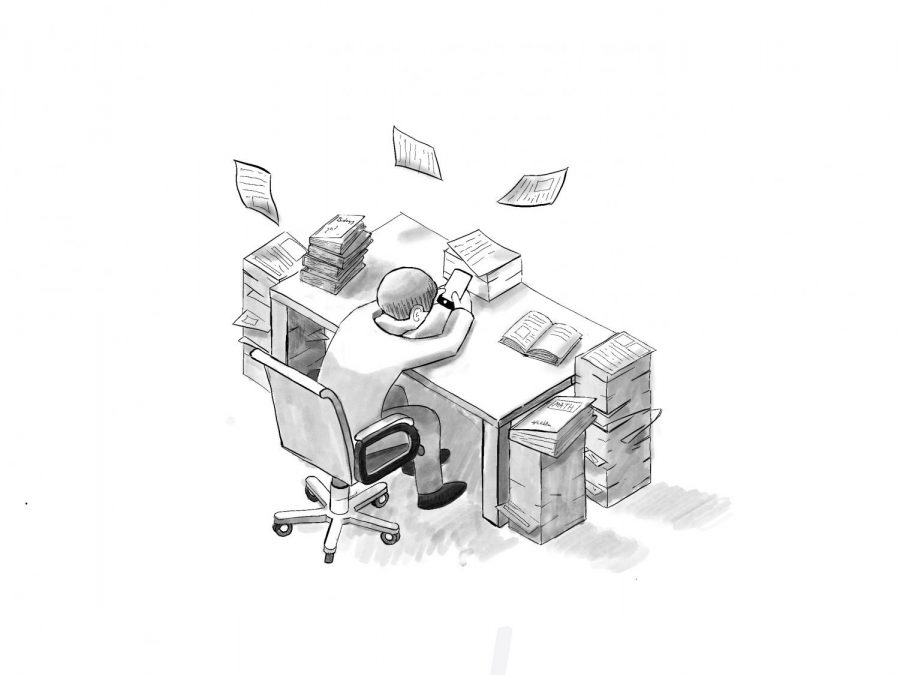As college students, I think we can all agree that each and every one of us has procrastinated at some point in our academic careers—and I’m fairly certain many of us still do.
Procrastinators are well aware that it is in their best interest to get the assignment finished in a timely fashion, and yet they will still put it off for the last minute regardless.
Procrastination is nothing new. People have been procrastinating since the beginning of time, but today’s technology readily enables us to procrastinate with the constant stream of distractions from the internet.
While procrastination is not something inherently bad, as students that procrastinate usually are able to get their assignments in on time and perform at a satisfactory level, it certainly is a bad habit— one that many students try to break repeatedly.
In order to break this habit, we have to examine why one is procrastinating. And there is a number of possible explanations for why someone may do this.
One of the most common reasons is that students often perceive the assignment as unimportant. It can be difficult to prioritize homework when there are so many other responsibilities we have. By having to balance between attending classes, maintaining a social life, going to work and doing the chores, homework can easily slip into the back of your mind. It is no longer the main concern and we use our time for other tasks.
Even when there is ample time available to complete assignments outside of the time in the classroom, procrastinators don’t always use the opportunity.
Students may be procrastinating because they do not find the curriculum interesting. When people are not engaged with what they are learning, they struggle to find the motivation to complete simple assignments.
This is particularly true in general education classes that are usually not related to the student’s major, making it easy for students to disengage from the material. With a lack of interest, procrastinators get distracted. Five minute study breaks can turn into hours wasted on social media. Procrastinators opt for instant gratification instead of muscling their way through completing the assignment.
Students may procrastinate because of their fear of failure. They are scared that the work they put into the assignment will not be good enough. To avoid the feelings of shame and ineptitude, students procrastinate and submit work that is inferior to their true abilities.
So how can we break this habit?
First, you have to stop procrastinating on trying to stop procrastinating. As the saying goes, there is no better time like the present. Start by creating tangible goals and following a daily schedule.
Schedule blocks of time throughout the week just dedicated to homework and studying. Prior to the study session, write out a to-do list of all the things you want to accomplish that day. Prioritize the most important assignments and break down bigger assignments into smaller tasks. This way the time is used constructively and no time will be wasted thinking about what needs to be done.
There are a few ways to ensure this time is used productively.
It is essential that you eliminate anything that could distract you later during your study time. Put your phone on the Do Not Disturb mode. Eat beforehand or have snacks ready if you get hungry. Declutter your workspace so there is ample room for your computer, textbooks, notebooks and any other studying materials.
Set up a reward system to create incentives. By having something to look forward to, it will keep you motivated during your work time. Once you complete everything that was on your to-do list, have a mini celebration for yourself whether it be treating yourself to ice cream or hitting the town with your friends.
Overcoming procrastination is something we can all work on and something we can all achieve. The process will be difficult, but well worth the work in the end. By not giving in to our tendency to procrastinate, we allow ourselves to be less stressed and more productive beings.
Catherine Van Weele is a sophomore studying political science. Follow her on Twitter at @catievanweele.







